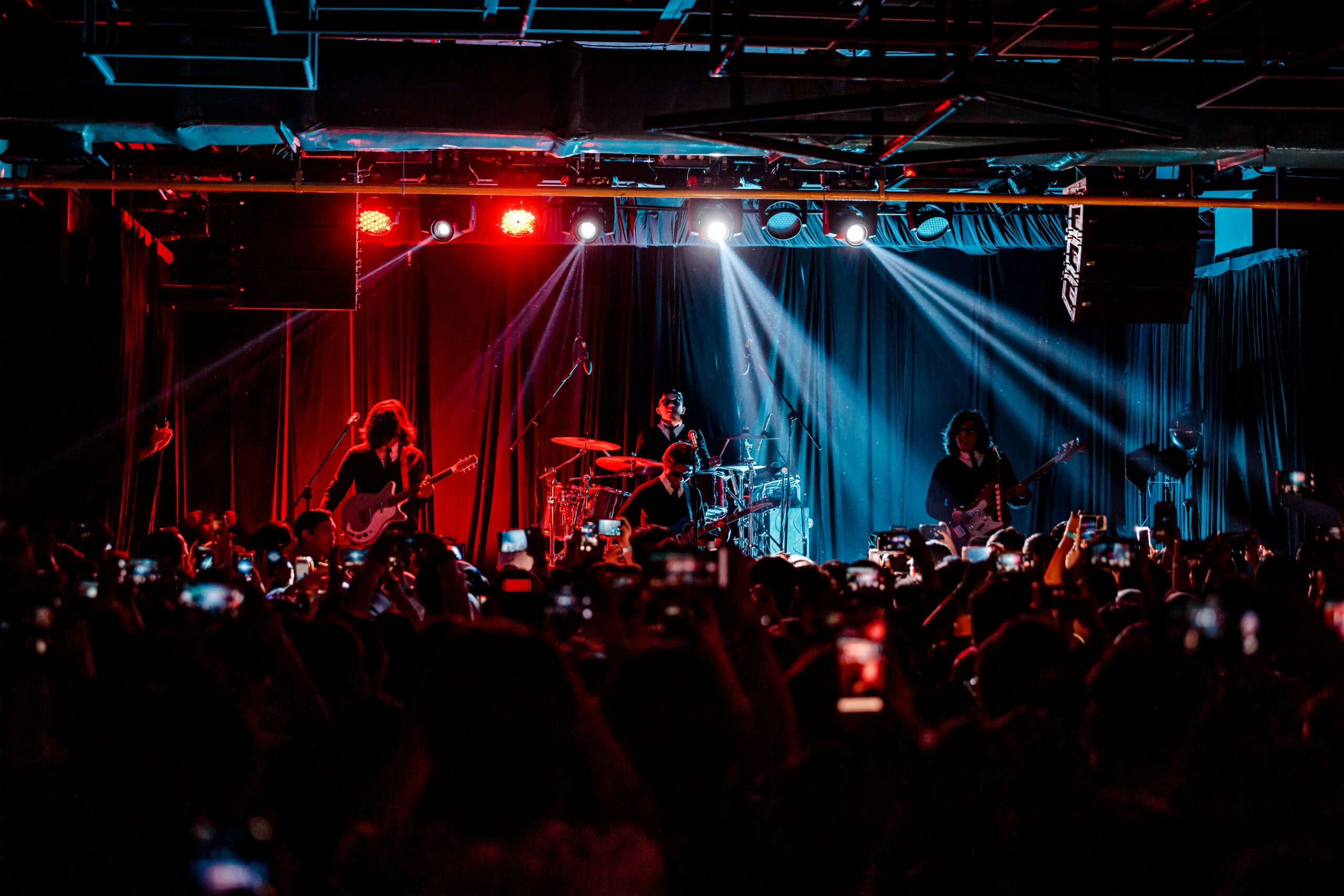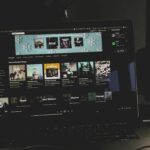Tips on Booking Live Performances as a new Musician in 2025
Booking your first live show as a new musician in 2025 can be a daunting experience. As a new band/musician, we’re assuming that you/your band are just starting out and have not played live and do not have a large fanbase. As such, drawing a large audience to your live show will be challenging. But don’t let that stop you! Every musician pays their dues, and even the greats stated off playing shows to small crowds. With the right approach and strategies, you can secure gigs that will help you build your fanbase and gain valuable experience. Here are some tips to on how to book your first live show:
1. Build a Strong Online Presence
In the past most musicians would start playing shows before they had any recorded music, but that’s really not the case anymore. In most cases you need some music or online presence to get gigs as people want to know what you sound like before they book you. Not to say that it’s impossible, maybe you know the person setting up the show, but in general, it really helps if you have some sort of online presence. You can refer to our other articles on promoting you music. This includes:
- Social Media Profiles: Maintain active profiles on platforms like Instagram, TikTok, and Facebook. Share your music, behind-the-scenes content, and engage with your audience.
- Music Streaming Platforms: Upload your music to streaming services like Spotify, Apple Music, and YouTube. Make sure your profiles are complete with bio, photos, and links to your social media.
- Website: Create a professional website with your music, bio, upcoming shows, and contact information. This serves as a central hub for promoters and fans to learn more about you.
2. Rehearse, Rehearse, Rehearse
We’re assuming that you are ready to play live, but if not, before you even consider booking a gig, get a set of your songs together that are at least 30-45 minutes long in total and play them over and over and over until you and/or your band are competent and confident.
3. Network with Local Musicians and Promoters
Networking is crucial in the music industry. Attend local shows, open mics, and music events to meet other musicians, promoters, and venue owners. Building relationships within your local music scene can lead to gig opportunities and collaborations. Don’t be afraid to introduce yourself and share your music. Not every gig is at a traditional venue. DIY events like backyard shows and house parties can be great places to play shows as they are generally more casual and probably have more of a built-in audience looking to have a good time. So going to these types of shows and meeting the people who put them together can help get you on the bill.
4. Reach Out to Venues
Identify venues that host live music in your area and reach out to them. When contacting venues, keep these tips in mind:
- Research: Understand the type of music the venue typically hosts and tailor your pitch accordingly.
- Professional Email: Write a concise and professional email introducing yourself, your music, and why you think you’d be a good fit for their venue. Include links to your music and social media profiles.
- Follow Up: If you don’t hear back, follow up politely after a week or two. Persistence can pay off, but be respectful of their time.
5. Utilize Gig Booking Websites
Several websites can help you find and book gigs. Some popular options include:
- Afton: A platform that helps independent musicians book live shows and live stream performances.
- AAE Music: A booking agency that connects musicians with event planners and promoters.
- Omari MC: A resource for finding gig booking websites that cater to independent artists.
6. Promote Your Shows
Once you’ve booked a gig, it’s essential to promote it effectively. Use your social media platforms, email newsletters, and website to spread the word. Collaborate with the venue and other artists on the bill to maximize promotion. Creating eye-catching posters and flyers can also help attract an audience. Reach out to local bloggers or music sites that cover live music in your area. Let them know about you and your upcoming show. Some of these sites have calendars of shows in the area, so it would be great to get you show included.
7. Create a Press Kit
A press kit is a valuable tool for booking gigs. It should include:
- Bio: A brief and engaging biography that highlights your musical journey and achievements.
- Music: Links to your best tracks or a demo reel.
- Photos: High-quality images for promotional use.
- Contact Information: Make it easy for promoters to get in touch with you.
8. Be Professional and Reliable
Professionalism goes a long way in the music industry. Show up on time for gigs, communicate clearly with promoters and venue staff, and be respectful to everyone involved. Building a reputation as a reliable and professional artist can lead to more booking opportunities.
9. Be Open to Different Opportunities
As a new musician, be open to various performance opportunities. This can include opening for other bands, playing at private events, or participating in local festivals. Each performance is a chance to gain experience, build your fanbase, and improve your stage presence.
10. Learn from Each Experience
After each performance, take time to reflect on what went well and what could be improved. Seek feedback from the audience, other musicians, and venue staff. Continuous improvement will help you grow as a performer and increase your chances of booking more gigs.
11. Stay Persistent and Positive
To be quite honest about most venues, what they care most about is how many people you can bring to your shows to buy tickets to the venue, drinks, merch, etc. So, the the hardest part about booking a successful show is really the work done beforehand to get people to know who you are, hear your music and want to come see you play.
As a new musician in 2025, this involves building a strong online presence, promoting you music online, networking and then promoting your shows. It’s not easy and it’s not going to happen immediately, so it’s important to be open to different opportunities, learn from each experience, and stay persistent and positive. And most of all, have fun. Playing live in front of an audience is probably the most rewarding part of being a musician. He hope this article helped give you some tips on how to book your first live show. Enjoy it!





